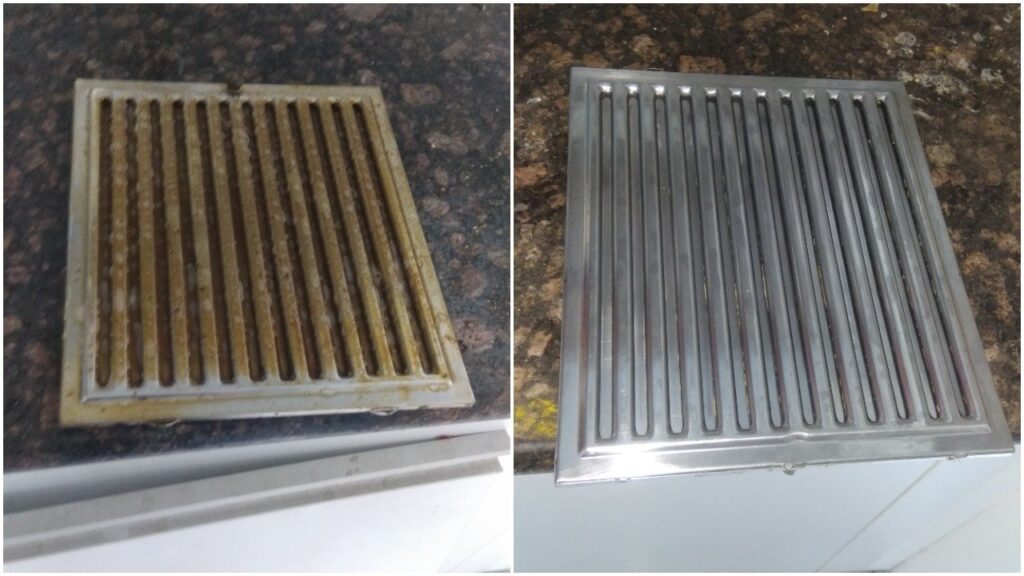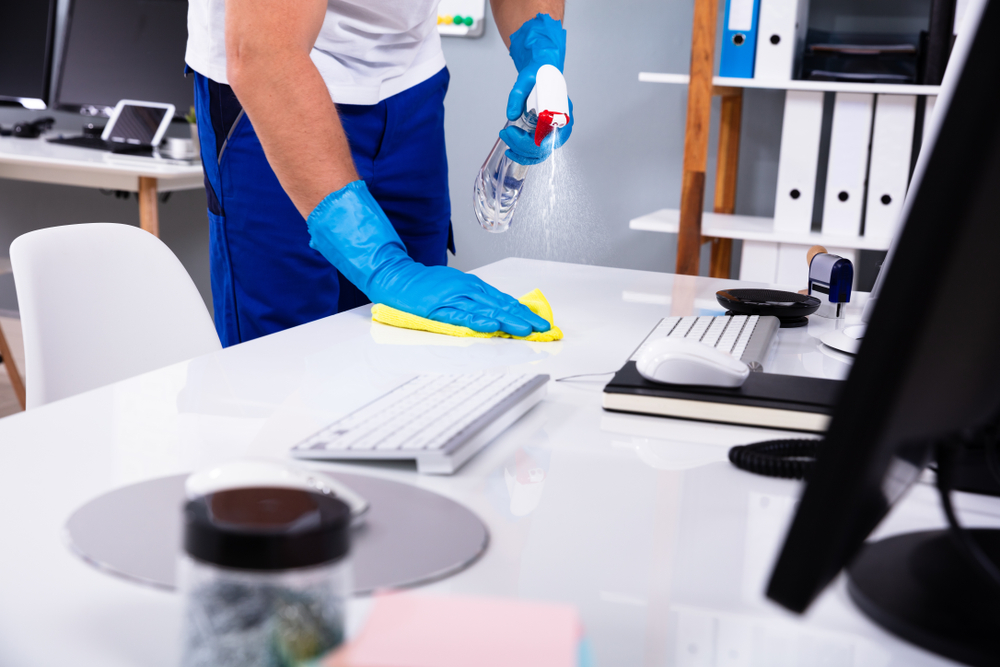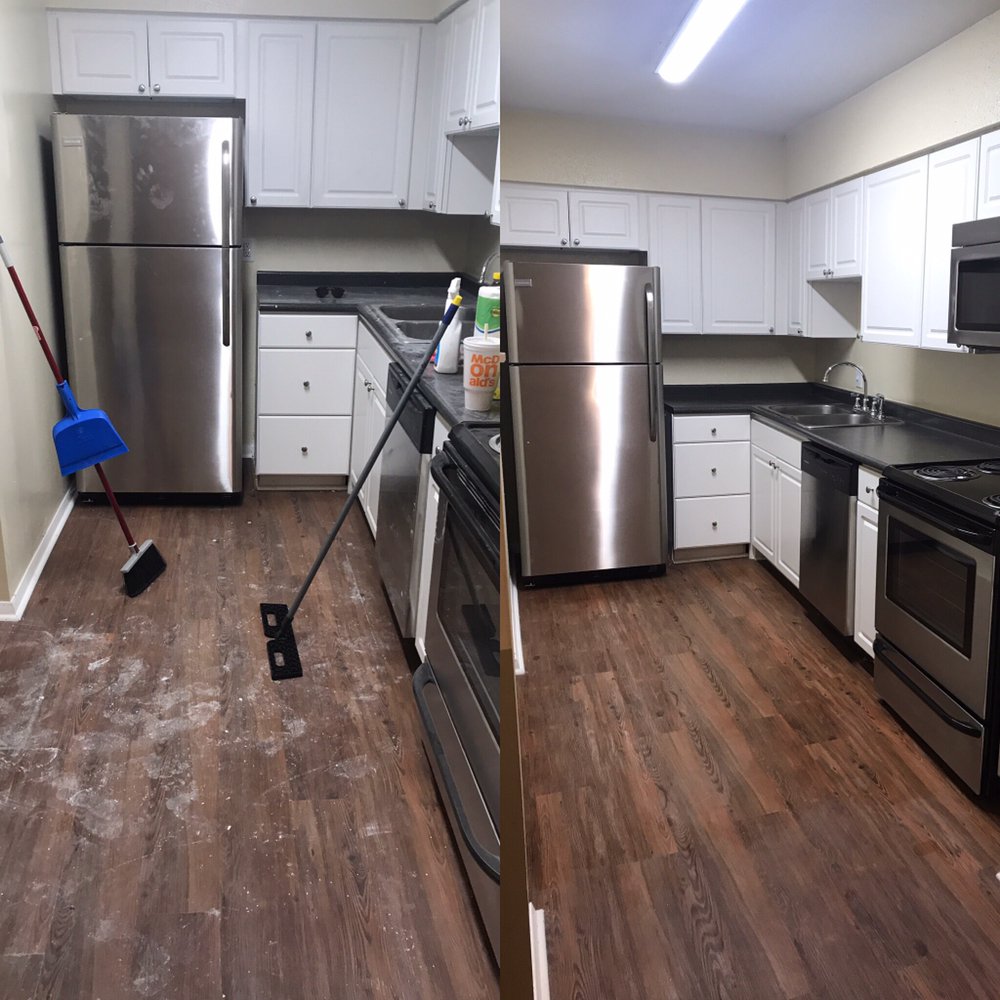Introduction
Is your kitchen chimney looking a bit greasy and tired? It’s probably crying out for a good clean! Keeping your chimney clean doesn’t just make your kitchen look better—it’s essential for safety and air quality too.
In this guide, we’ll walk you through everything you need to know to clean and maintain your kitchen chimney at home like a pro—no expensive service required.
Why Cleaning Your Kitchen Chimney is Non-Negotiable
Over time, your chimney collects grease, grime and food particles that can clog filters and reduce performance. Worse, this grime can become a fire hazard and seriously affect the air you breathe.
Common Signs Your Chimney Needs Cleaning
-
Strong greasy smell in your kitchen
-
Visible oil stains on the chimney body
-
Loud motor sound or poor suction
-
Smoke lingering longer than usual
Understanding Kitchen Chimneys
What is a Kitchen Chimney?
A kitchen chimney is an electric appliance installed above the stove or cooktop to suck out fumes, smoke and oil particles while cooking.
Types of Kitchen Chimneys
-
Wall-mounted
-
Island Chimneys
-
Built-in Chimneys
-
Corner Chimneys
How a Chimney Works
It sucks in the air filled with grease and smoke, filters it and either recycles or exhausts it outside through ducts.
The Dangers of a Dirty Chimney
🔥 Fire Hazards
Built-up grease can catch fire, especially when cooking on high flame.
🌫️ Poor Ventilation and Indoor Air Quality
Your kitchen could turn into a smoky mess, making it uncomfortable to cook.
🤧 Health Issues from Grease Buildup
Dirty chimneys can cause respiratory issues and attract pests.
How Often Should You Clean Your Chimney?
📆 Based on Usage
-
Heavy Use (Indian Cooking): Clean every 15 days
-
Moderate Use: Once a month
-
Minimal Use: Once every 2-3 months
🍳 Type of Cooking Oil and Food
If you use oil-heavy dishes or deep fry often, clean more frequently.
🔧 Manufacturer’s Recommendations
Always check your chimney’s manual for cleaning intervals.
Essential Tools and Materials You’ll Need
-
Microfiber cloths
-
Dishwashing liquid or degreaser
-
Baking soda and vinegar
-
Old toothbrush
-
Gloves and safety goggles
Pre-Cleaning Preparation
⚠️ Turn Off the Power
Never clean your chimney while it’s connected to power.
🧽 Remove and Soak Filters
Soak filters in hot water with detergent and baking soda for 20-30 minutes.
🛡️ Protect Your Kitchen Surfaces
Use newspapers or an old sheet to protect your counter and stove.
Step-by-Step Guide to Cleaning Your Chimney
1️⃣ Cleaning Baffle / Mesh / Cassette Filters
-
Remove filters carefully
-
Soak in hot soapy water
-
Scrub with a brush and rinse
2️⃣ Cleaning the Exterior Surface
-
Wipe down with a microfiber cloth and degreaser
-
For stubborn stains, use vinegar or lemon
3️⃣ Cleaning the Interior Duct Area
-
Use a long brush if accessible
-
If too greasy, better to call a professional
4️⃣ Wiping Down the Chimney Hood
-
Use mild soap solution
-
Dry thoroughly to avoid water spots
Natural vs. Chemical Cleaners – What’s Better?
✅ Pros and Cons
-
Natural Cleaners: Eco-friendly, safe for regular use
-
Chemical Cleaners: Stronger, good for tough grease but harsh
🧴 DIY Natural Cleaner Recipes
-
Mix baking soda + vinegar + lemon juice = Powerful degreaser
-
Use warm water and dish soap for daily maintenance
How to Maintain Your Kitchen Chimney Post-Cleaning
🧹 Regular Dusting and Wiping
Quick wipe-downs after cooking prevent heavy build-up.
🔍 Monthly Filter Checks
Remove, inspect and clean filters regularly.
📅 Professional Cleaning Schedule
Even if you clean at home, a deep clean by experts once every 6 months is ideal.
When Should You Call a Professional?
🧈 Deep Grease Accumulation
If filters are sticky and dark even after soaking—call in the pros.
⚡ Electrical or Motor Issues
Unusual noise or no suction means it’s time for expert hands.
🚫 Chimney Not Functioning Properly
If smoke isn’t being exhausted properly, don’t risk it—get help.
Bonus Tips to Keep Your Chimney Cleaner for Longer
-
Use lids while cooking to contain splatter
-
Avoid cooking on high flame unnecessarily
-
Keep windows open for natural ventilation
Common Mistakes to Avoid While Cleaning
-
Don’t use steel wool or hard brushes—they can scratch the chimney
-
Never skip turning off the power
-
Don’t forget the duct—it’s the chimney’s lung
Benefits of a Clean Kitchen Chimney
-
Appliance Lasts Longer
-
Improved Kitchen Hygiene
-
Better Airflow and Reduced Smoke
-
Lower Electricity Consumption
Conclusion
Cleaning your kitchen chimney doesn’t have to be a unpleasant chore. With the right tools, a little patience and this guide by your side, you can maintain a spotless, safe and functional chimney all year long. Trust us—your lungs (and your nose) will thank you.
FAQs
1. How often should I clean my kitchen chimney?
For heavy Indian cooking, every 15–30 days is ideal. For light use, once in 2-3 months works.
2. Can I use vinegar and baking soda to clean my chimney?
Yes, it’s an effective and natural degreaser.
3. Is it safe to clean the chimney myself?
Absolutely—just remember to turn off the power and follow safety steps.
4. What if my chimney has a non-removable filter?
Use a degreasing spray and a soft brush for surface cleaning.
5. When should I call a professional for chimney cleaning?
If your chimney has electrical issues, deep grease or reduced suction—even after cleaning—it’s time to call in an expert.
– Home Cleaning Services in Pune
– Sofa Cleaning Services in Pune
– Office Cleaning Services in Pune
– Bathroom Cleaning Services in Pune
– Kitchen Cleaning Services in Pune
– Carpet Cleaning Services in Pune
– Window Cleaning Services in Pune
– Mattress Cleaning Services in Pune
– Office Carpet Cleaning Services in Pune
– Office Chair Cleaning Services in Pune




